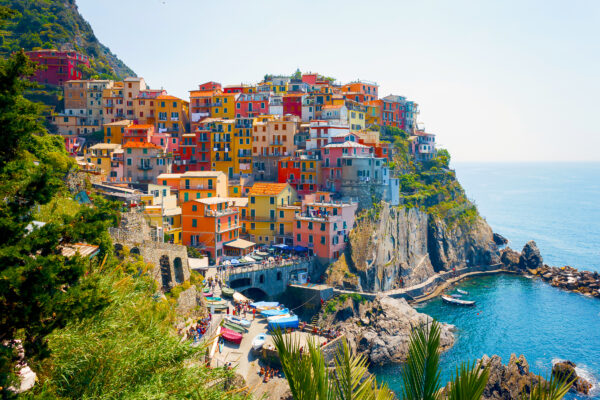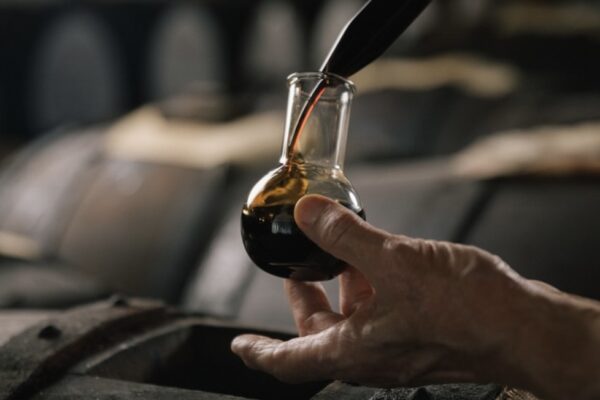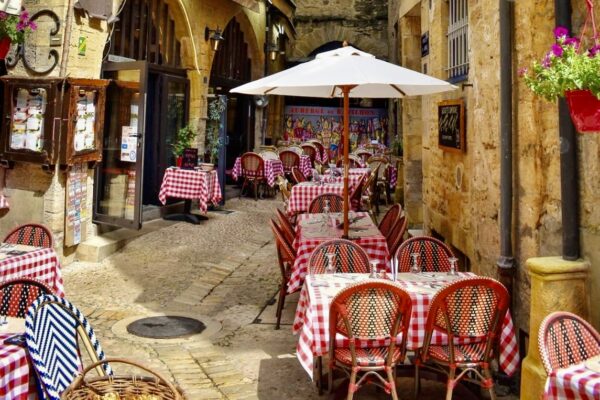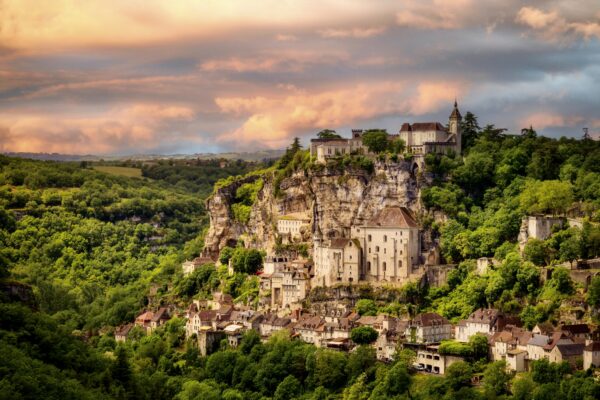The Magical Flavors of the Dolomites
Text and photos by Michèle Shah, Michèle Shah Travel
The majestic range of Dolomite mountains, situated in northeastern Italy in the ski area of Alta Badia, easily reachable from Venice or Milan and listed among the wonders of the world, is not to be missed. A UNESCO World Heritage site since 2009, the Dolomites comprises a mountain range of 18 peaks which rise to above 3,000 metres, featuring breathtaking vertical walls, sheer cliffs and a high density of narrow, deep and long valleys.
Luxury hospitality, excellent skiing and hiking, surrounded by breathtaking views are just a few of the attractions that entice a discerning clientele to Alta Badia, eager to enrich their experience with the unique opportunity to indulge in a sensorial culinary journey with a choice of three Michelin starred restaurants all within a radius of 10 kilometers.
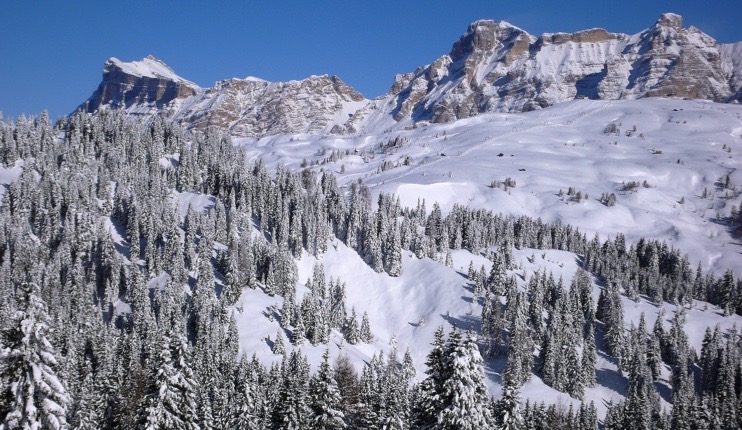
The cooking of Alto Adige derives from distinct heritages, one Italo-Venetian, the other Austro-Tyrolean, but the intermingling of peoples drawing on shared resources along the Adige Valley has taken the sharp edges off the contrasts. Something akin to a regional style of cooking has emerged combining the best of Alpine and Mediterranean cuisine and this is what emerges from the top dining locations in the charming resorts of Alta Badia.
The heart of the Dolomites is in Alta Badia where you can find the highest peaks. Nestled at the foot of the mountains are the charming village of San Cassiano and Corvara which house three of Italy’s top Michelin starred restaurants, St Hubertus, La Siriola, La Stüa de Michil and Moritzino Club (not yet starred but highly popular for its fresh fish), proof of the exclusive, gourmet travel that prevails in the area.
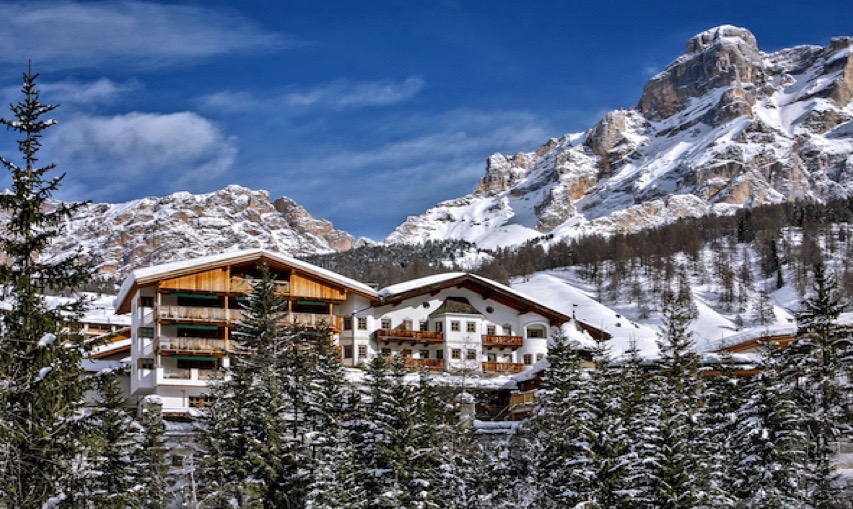 Hotel & Spa Rosa Alpina situated in the quaint village of San Cassiano offers exquisite hospitality. Voted Best Hotels in the World 2016 – Gold List by Conde Nest Traveller.
Hotel & Spa Rosa Alpina situated in the quaint village of San Cassiano offers exquisite hospitality. Voted Best Hotels in the World 2016 – Gold List by Conde Nest Traveller.
The Pizzinini family has run the Rosa Alpina for three generations. Hugo, the current owner, can be found at any moment helping to pack a breakfast hamper for a romantic trek to their mountain cabin then, five minutes later, looking for one of Rosa Alpina’s best Champagnes to chill for a favored guest’s lunchtime arrival. Next, he’ll be at the front desk, discussing where to find the finest ski slopes for powder snow. Such intuitive hosting helps keep everything on a level (there are plenty of oligarchs around in high season), while providing off-the-scale excuses for an all-out splurge.
The three-bedroom wood-and-glass penthouse suite with an outdoor hammam is spectacular. As the newly refurbished two-floor spa, where you’ll find a yoga room a gym and a heated indoor pool. The attractions of this place are perfectly matched by its outdoor splendour: San Cassiano, with its quaint village church and population of fewer than 1,000 people, has a lost-in-time feeling.
Rosa Alpina’s St Hubertus 3 Michelin star restaurant run by Chef Norbert Niederkofler is one of Italy’s top dining destinations. Niederkofler’s ingredients are carefully sourced from local farms. His philosophy is based on a creative approach, but also on an ‘ethical’ and economically sustainable approach: free range and no wastage concerning animal products and zero km where possible, sustaining a whole local community of farmers dotted around the nearby mountains.
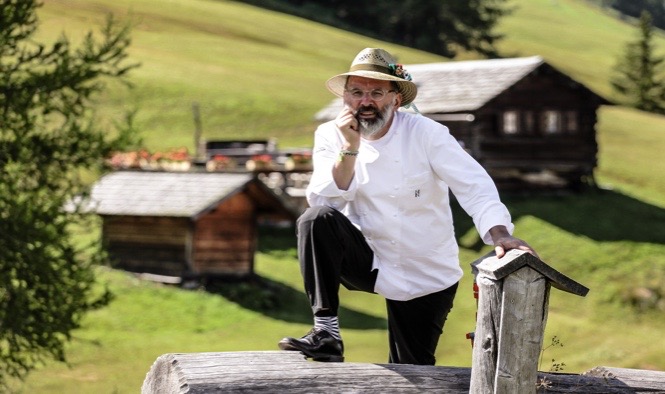
Norbert’s essence, as he likes to put it, is ‘to cook the mountain’, where you really enter into the culture of the mountain. It goes without saying that all dishes change according to the season, as all ingredients are rigorously seasonal. A lot of the processing, seasoning and aging is done in house with meat and fish as well as with fruit, vegetables and grains. Norbert’s latest discovery is fermentation which produces not only amazing flavors and textures, but also is very good health-wise being full of vitamin C as well as assisting the digestion.
“My success is the result of clear ideas and goals, and the fact that I always question myself and try to remain humble. I consider myself lucky in that I earn my living by doing what I love, since my profession is my hobby and my philosophy of life,” says Norbet.
Among my favorite dishes is the simple but tantalizing palate chaser ‘Winter Garden’ made up of organically grown winter vegetables steamed and then glazed with essence of ‘antique’ carrots and grape seed oil. To follow one of Norbert’s favorite winter entrées, gently smoked trout fillet tartar fished from the local mountain streams, garnished with caviar. As a ‘pasta’ dish his gnocchi made from potato and red beetroot with a cream and horseradish filling, just melts on the palate. Another signature dish is Norbert’s onion risotto, cooked with wine and a mix of cheeses, then topped with whipped cream, chives and cheese. The combination of flavor is intense, yet each fork-full leads easily to another.
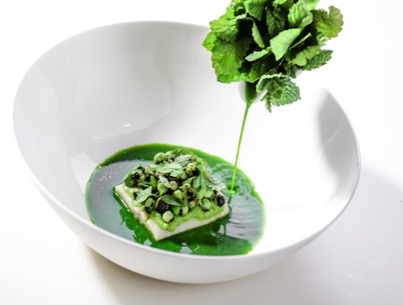
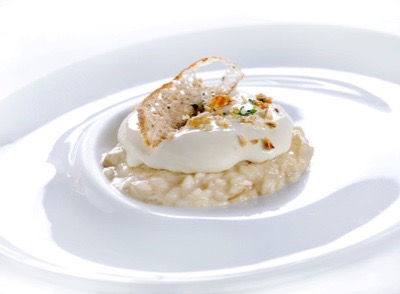
St Hubertus’ wine list comprises some 1900 labels and is the creation of Head Sommelier Christian Rainer who is well versed in matching perfectly the wines to any dish prepared by Chef Niederkofler. Alto Adige with its fragrant white wines and German-accented syllables, is sometimes compared with Alsace. They have vines in common – Riesling, Sylvaner, Pinot Blanc, Pinot Noir, Pinot Gris, and Muscat – and it is said that the Traminer variety, a superior clone of which became Gewürztraminer in Alsace, took its name from the Alto Adige village of Tramin. But analogies should not be overdrawn, for Alto Adige has its own clear styles and a strong line in reds also from local varieties which include: Lagrein, Schiava, St Magdalena, Pinot Noir, Merlot, Cabernet Sauvignon.
La Siriola, two star Michelin Restaurant, just two kilometers outside San Cassiano is housed in the Ciasa Salares Hotel, right at the bottom of some of the ski slopes. Its Executive Chef Matteo Metullio at the age of 28 is among Italy’s youngest star-studded chefs. His cuisine is bold with sweet and savoury contrasts. He does not adhere to the ‘kilometre zero’ eco-sustainability of sourcing products. “I want to source the best seasonal products from the best areas of production. If the best shrimps are form Sicily then I will get these flown in and delivered in the early morning,” says Matteo.
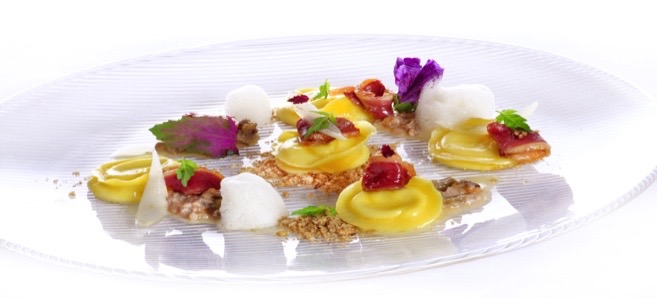 La Siriola offers four tasting menus, each one themed to local traditional fare or to a more daring and exotic intermingling of flavours and ingredients, as well as è la carte dining. His creative streak, which is well balanced in texture and flavors is what makes his cuisine tantalizingly appealing. His sesame sandwich, scampi tartare, smoked potatoes, cocoa powder and lemon is much favoured entrée, followed by Spaghettone with sea urchins, citron and Provolone del Monaco, while ever popular is the main course based on suckling pig in three courses with mustard potatoes, honey and white celery, green apple and tempura oyster; bacon, morellos and horseradish foam. Tangerine parfait with green cardamom, dates cream, Arabica coffee brulé is the perfect finale to such a creative menu.
La Siriola offers four tasting menus, each one themed to local traditional fare or to a more daring and exotic intermingling of flavours and ingredients, as well as è la carte dining. His creative streak, which is well balanced in texture and flavors is what makes his cuisine tantalizingly appealing. His sesame sandwich, scampi tartare, smoked potatoes, cocoa powder and lemon is much favoured entrée, followed by Spaghettone with sea urchins, citron and Provolone del Monaco, while ever popular is the main course based on suckling pig in three courses with mustard potatoes, honey and white celery, green apple and tempura oyster; bacon, morellos and horseradish foam. Tangerine parfait with green cardamom, dates cream, Arabica coffee brulé is the perfect finale to such a creative menu.
Each course is expertly matched to a wine from La Siriola’s eclectic wine list which derives from a collection of over 2400 labels meticulously selected and stored in Stefan Wieser’s cellar. Stefan Wieser, owner of Ciasa Salares hotel and La Siriola restaurant is a great connoisseur when it comes to quality wines. His cellar is well worth a visit and comprises a good selection of Alto Adige wines as well as Italian premium wines and a selection of 350 biodynamic and natural wines from all over the world. Stefan and Matteo regularly sit down together and taste and try out the new dishes on the menu with a number of wines in order to create set themed menus where each dish is paired to a selected wine.
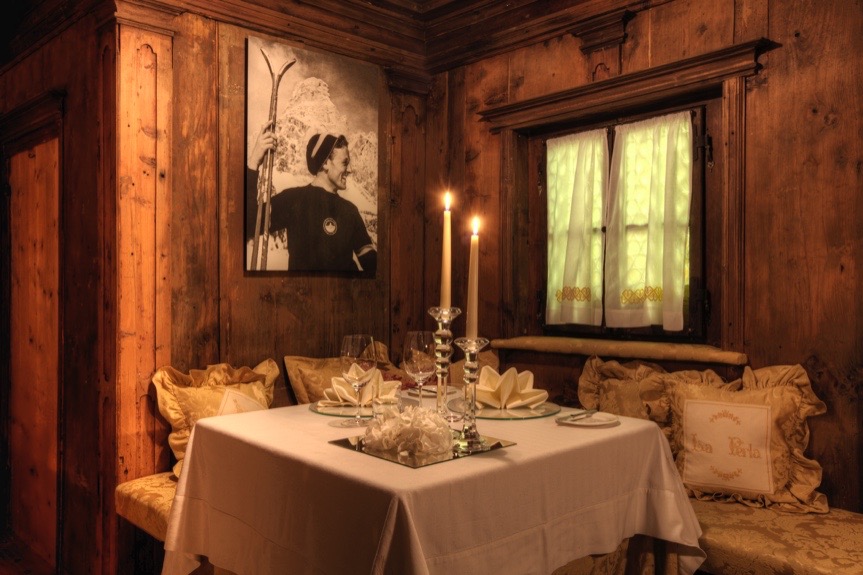
Only a few miles away Nicola Laera a young local Chef heads La Stüa de Michil’s one-star Michelin fine gourmet dining at la Perla’s exclusive hotel in Corvara. Here tradition meets innovation, always with respect for the best ingredients. Soft lights, fine centerpieces, candles and local wood panelling make this restaurant a timeless jewel. La Perla’s hidden jewel lies underground in its cellar, a real mausoleum dedicated to Tuscany’s Tenuta’ San Guido’s eclectic wine, Sassicaia. A visit to the cellar is a truly unique experience and takes one to the temple of Sassicaia comprising some 2100 bottles of its different vintages, in fact, an entire room dedicated to every single vintage from start to date of Sassicaia, one of Italy’s benchmark wines of excellence.
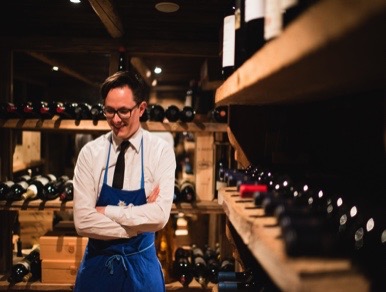
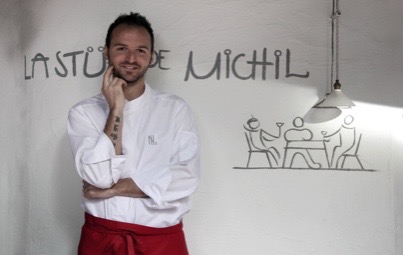
Head sommelier Paolo Baraldi works closely with the chef in pairing some interesting and excellent lesser-known local wines from small vignerons, superbly matched to Nicola Laera’s dishes.
Chef Nicola’s cuisine is much influenced by his family heritage. His mother is ‘Ladino’, which is the local name for the people and the local language of the area of Alda Badia. While Nicola’s father is from Puglia, in the south of Italy. This mix of culture from very different regions in Italy allows him to blend the flavours and ingredients of the south with the north and create some very interesting cross references to regional cooking. Examples such as a starter of buffalo ricotta with clams and red prawns, peas and mint are very influenced by the south, or possibly the veal head in bread crust with roasted scallops and sour onion and dandelion is a bold mix of Dolomites ingredients and southern ingredients. The same with the spaghetti with raw red prawns from the south, and red crab meat are among my favorite dishes. Second courses follow the same philosophy of regional styles and ingredients such as juicy braised lamb with Sicilian aubergines, capers and marsala sauce. It is quite an excursion which is not to be missed.
What really makes this area special when it comes to excellence in hospitality, scenery and dining is also the opportunity of indulging in all these wonderful sensations at an altitude. The Dolomites are wonderful be it in winter for winter sports or summer for the sunny breezy days and cool evenings which allows one to trek or walk in the dolomites or just visit the small villages and enjoy the wonderful light, intense green landscape, bight skies and sunshine.
Alta Badia has some of the world’s top ski instructors and experienced mountain guides eager to guide you around the beautiful scenic slops. In winter one can ski, or join snow walking excursions, in summer there is real mountain climbing at altitudes and gradients as well as gentle walks in the pine forests. The Dolomites is famous for the ski excursion of the four passes, which takes one into the Val Gardena and over some spectacular mountain scenery. Its extensive area of slopes which are all inter-connected allows for some of the best skiing in the world.
One of the favorite destinations for dining on the slopes is Club Moritzino restaurant and bar open in summer and winter offering some of the best and freshest fish which is flown in daily from Chioggia near Venice. Its tantalizing menu of fine fish dishes prepared by Chef Marco Spinelli, includes fresh lobster, prawns and oysters, as well as pan fried bream, seabass, John Dory, Turbot and many more exquisite fish.
It has a well-stocked wine and champagne list, all to be enjoyed at an altitude of 2100 metres. Club Moritzino is considered by all Dolomite aficionados as ‘the best restaurant on the slopes’. Whether you are up on the ski slopes in winter or enjoying the luscious green mountain views in summer you can always find fine dining and genuine hospitality in Alta Badia.
WINE IN THE TRETINO ALTO ADIGE
Trentino (the province of Trento) and Alto Adige (the more northerly province of Bolzano, also known as the South Tyrol or Südtirol, bordering Austria, unified to Italy in 1919, after World War I, share a range of fragrant white wines and German-accented syllables. Both Trentino and the Alto Adige produce notable amounts of the popular Pinot Grigio, Chardonnay, and Sauvignon, as well as Pinot Bianco, and Riesling. While the more aromatic Müller-Thurgau, Moscato, Sylvaner and Gewürztraminer, which is said to take its name from Alto Adige village of Tramin, can be enticingly perfumed and unexpectedly age-worthy.
One main distinction between Trentino and Alto Adige is that production in Alto Adige comes mainly from small family-owned estates that sell their wines locally with limited exports to Germany and Austria. Trentino on the other hand counts on a large number of growers, members of large cooperatives, such as Cavit and Mezzacorona. These popular wines have found their niche, both in Italy and abroad, among wine drinkers who look for reasonably good and affordable wines for daily enjoyment.
Alto Adige is divided by its waterways, the Adige River and the Isarco River, thus creating two valleys. The vineyards are dotted around the banks of the rivers rising from an altitude of 200 to 1,000 metres into the hills. Bolzano to Trento is an easy 60km and indications are well sign posted with good restaurants, hotels and excellent wineries on the way.
Cooperatives in Trentino-Alto Adige, go as far back as the Hapsburg Empire and are quite common representing the lion’s share of production. Cooperative farming in Trentino-Alto Adige played a fundamental role, its success stems from the necessity to create an effective economic system for the region’s fragmented farming industry, including that of viticulture, the average grape grower owns little more than 1ha, and most vineyards rise up the mountainsides as spectacular steep terraced vineyards, some still using the ‘pergola’ system.
Cantina Terlano – a cooperative founded in 1893, just above Bolzano at Terlano is one of the best expressions of ‘heroic vineyards’ in Alto Adige producing exquisite white wines, in particular its Pinot Blanc from the terraced Vorberg vineyards. Well worth the drive to visit the vineyards above Terlan.
Cantina Girlan (www.girlan.it) has built up a leading position as a Pinot Noir producer – with wines of great character and remarkable elegance. In the last few years, Cantina Girlan set itself still higher goals and conducted a search for a single site capable of producing an outstanding Pinot Noir combining an international standard of quality with the authenticity of the terroir. The choice finally made was a monopole site by the name of Ganger, home of the Pinot Noir Riserva Vigna Ganger.
Cantina Nals Margreid – is a “star on Alto Adige’s wine scene. Their wines have received the highest accolades from prestigious wine publications, including Wine Enthusiast, Wine and Spirits, Wine Spectator and James Suckling. Their whites are particularly interesting, exhibiting an intense minerality and acidity.
Termeno or Tramin is home to Martin Foradori’s family estate, Hostätter, (www.hofstatter.com) one of Alto Adige’s historic estates established in 1907 especially to experience the zesty aromatic Gewurtztraminer of Tramin, his majestic single vineyard Pinot Noir Barthenau, Vinga S. Urbano is where Itlay’s best Pinot noir comes from 100-year-old vines of the Mazzon site, as well as home to local Lagrein. Bolzano is one of Alto Adige’s top areas for red wines, including the light indigenous Schiava wines. The surrounding chain of mountains creates a perfect microclimate characterized by warm summers protecting the vines, giving good ripeness.
Endrizzi Estate – in Trentino, a beautiful old family house and estate at San Michele all’Adige producing some authentic indigenous and elegant varietal wines such as Pinot Grigio, Nosiola, Müller Thurgau in the whites and Teroldego Rotaliano, Lagrein, in the reds. Top bottling include their Masetto range. The estate has a well stocked shop and a nice setting for a light snack.
Elisabetta Foradori – a family run certified biodynamic estate at Mezzolombardo, well worth a visit, produces indigenous wines from Teroldego, Pinot Grigio, Nosiola and Manzoni Bianc. Elisabetta is sought out for her Teroldego, characterized by its deep granite hue and soft tannins. Her cellar with its hand-crafted amphorae which come all the way from an artisan in Spain is a must to see and a tasting with Elisabetta is a wonderful experience as she explains the importance of biodiversity in winemaking.
Trentino, which pioneered sparkling wine made by the classic method early in the century, has retained its leading position and these sparklers are now grouped under Trentodoc appellation. They are predominantly Chardonnay based, and the extensive amounts of Chardonnay in Trentino’s vineyards reflects the importance of this production. Today a fair amount of Pinot Noir is also used in Trentodoc production. A visit to Ferrari, (www.cantineferrari.it) one of the oldest sparkling estates is a real eye-opener to premium Italian sparkling wines. If you have the time stop at the one starred Michelin Locanda Margon and then visit the family’s jewel which is Villa Margon.
South of Trento two distinctively different estates show up for the quality of their wines. The first near Volano is home to Eugenio Rosi, a controversial, yet authentic production of the indigenous Marzemino wine, showing a fruity vibrant character, very enjoyable and versatile. Slightly further south near Avis is Tenuta San Leonardo Estate (www.sanleonardo.it), home to one of Italy’s premium age-worthy Bordeaux style blends of extreme elegance and harmony. Top bottling Villa Gresti is a selection of 90% Merlot with 10% Carmenère. This is another must as the estate comprises a large parkland and houses an interesting museum of farm machinery and tools, but above all the family Marchesi Guerrieri Gonzaga if in house are absolutely delightful hosts.
ADDITIONAL INFORMATION
Restaurant St Hubertus (3-star Michelin)
Relais & Chateaux Hotel & Spa Rosa Alpina San Cassiano in Badia – (Bolzano)
Tel: 39 0471 849500
Fax: 39 0471 849377
Ristorante La Siriola (2-star Michelin)
Hotel Ciasa Solares San Cassiano in Badia – (Bolzano)
Tel: 39 0471 849445
Fax: 39 0471 849369
La Stüa de Michil (1-star Michelin)
Strada Col Alt, 105, Corvara in Badia – (Bolzano)
Tel: 0471 831000
Fax +39 0471 83 65 68
Club Moritzino – Café Restaurant Terasse
Piz La Ila
Tel: +39 0471 847403
Fax +39 0471 847395
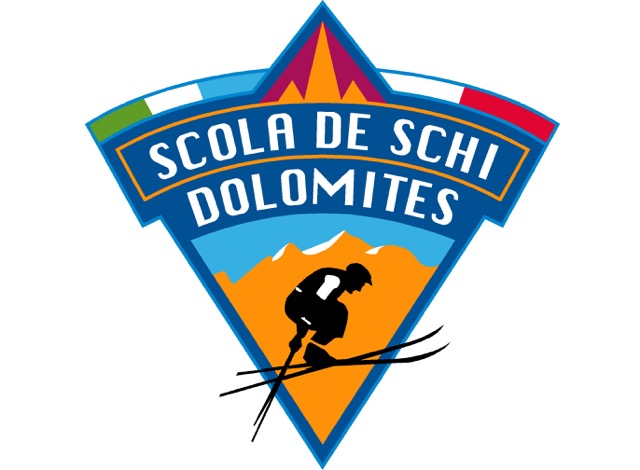 SKIING & EXCURSIONS IN THE DOLOMITES
SKIING & EXCURSIONS IN THE DOLOMITES
Scuola Sci da Fondo Alta Badia
San Cassiano
Ski & Snowboard in the Dolomites
Email: info@skidolomites.it
Alta Badia
Offers excelletn info in the area.
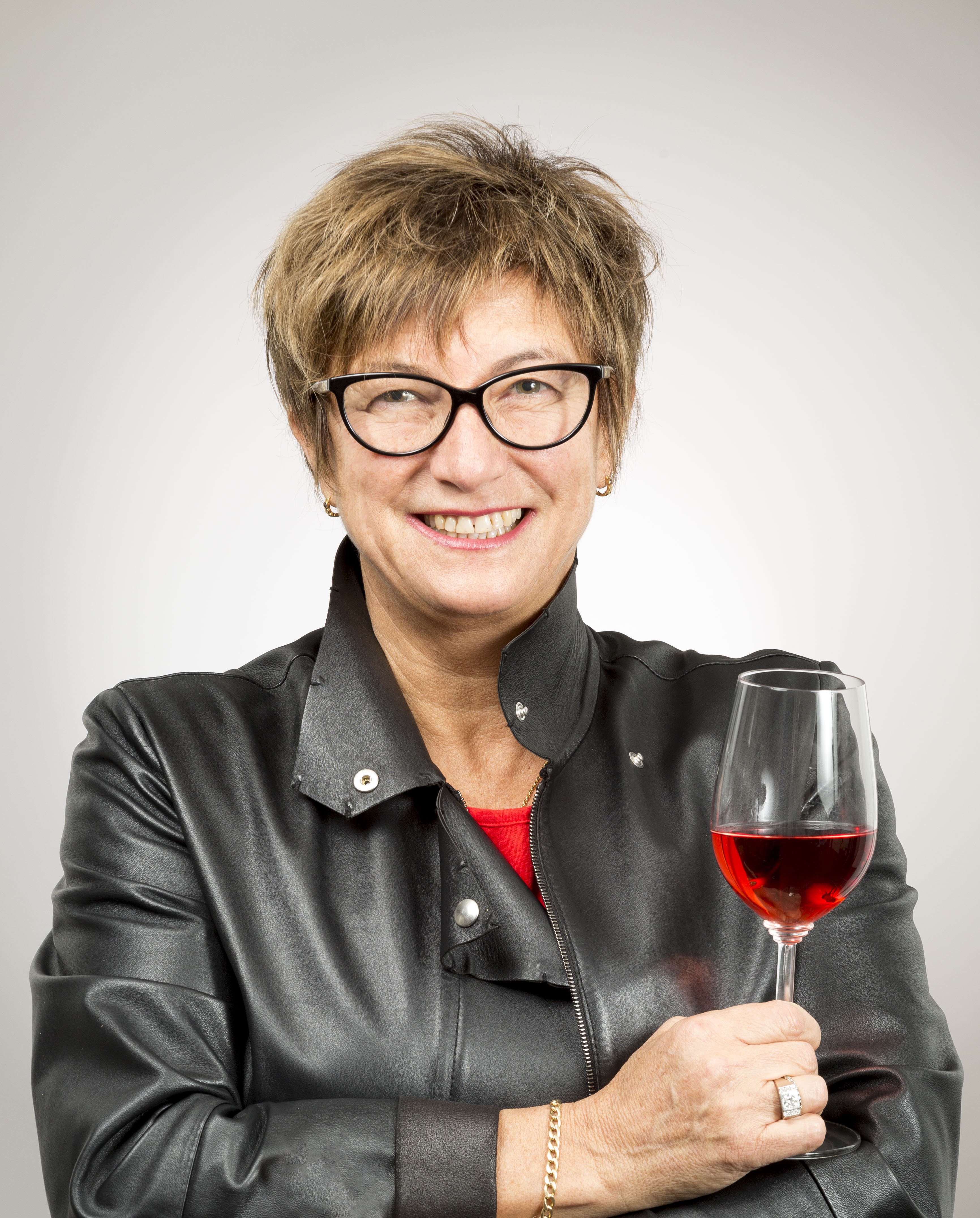 Michèle Shah is an expert on Italian wine, she has lived in Italy for over 30 years and her activities, include, writing, seminars, wine judging, wine tastings & international wine events. Her writing experience includes: Meininger’s Wine Business International, Wine Spectator, Decanter, and a number of other International publications. Michele Shah has recently set up specialized travel to Italy check out her Facebook page ‘Exceptional Tailored Travel to Italy’.
Michèle Shah is an expert on Italian wine, she has lived in Italy for over 30 years and her activities, include, writing, seminars, wine judging, wine tastings & international wine events. Her writing experience includes: Meininger’s Wine Business International, Wine Spectator, Decanter, and a number of other International publications. Michele Shah has recently set up specialized travel to Italy check out her Facebook page ‘Exceptional Tailored Travel to Italy’.




